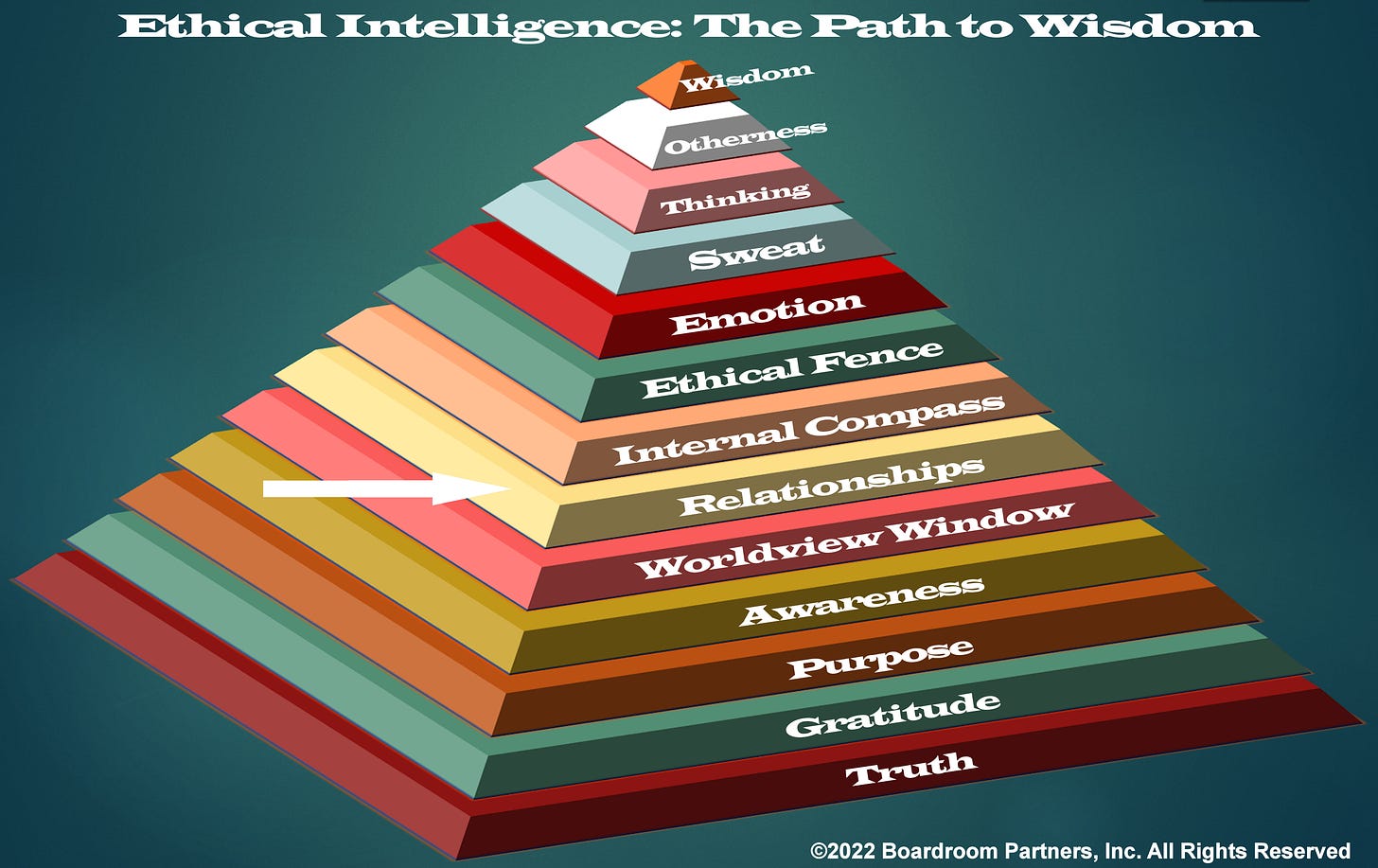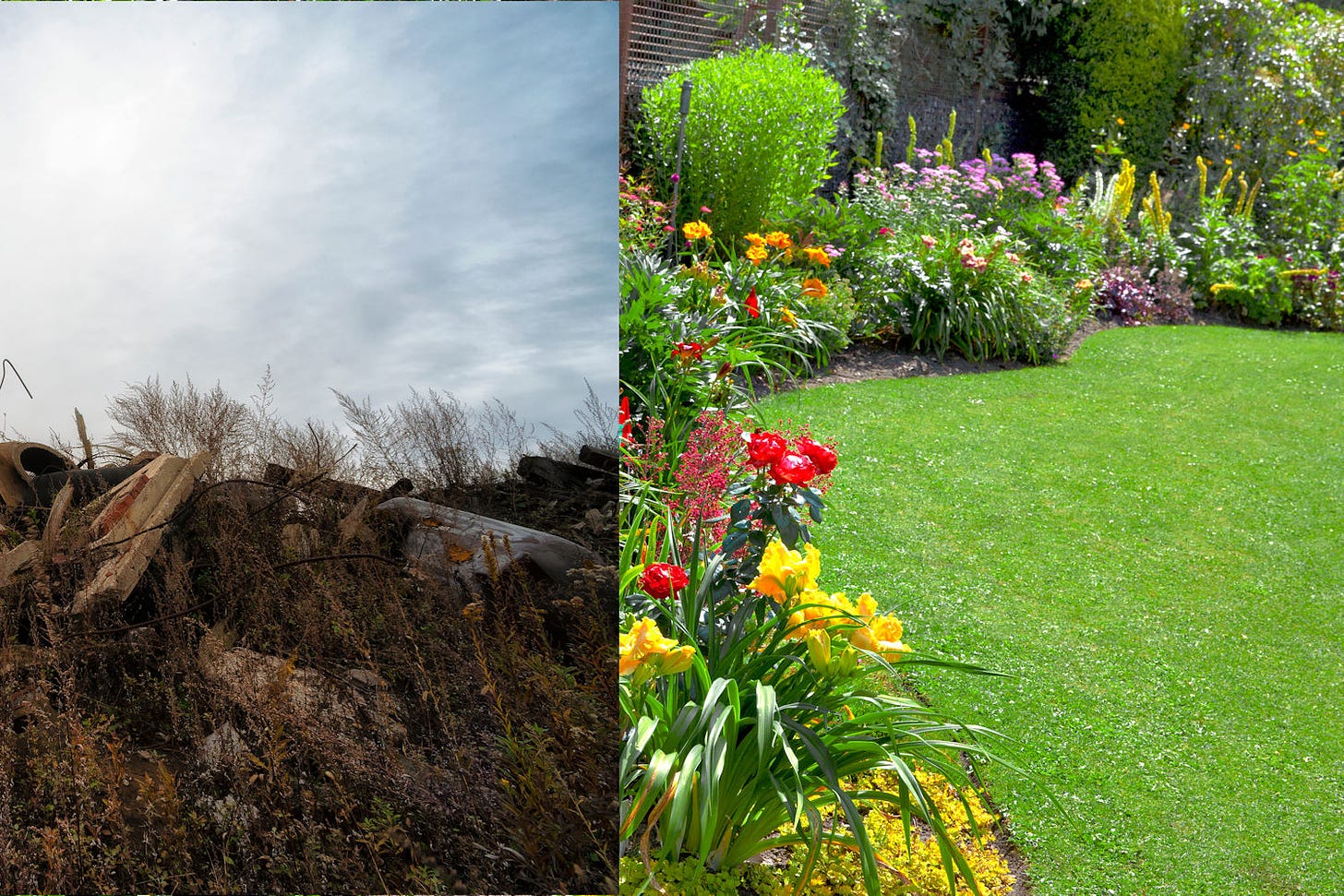YOUR MOTHER AND YOUR ETHICS
Exploring the Unbreakable Connection Between Your Ethical Intelligence Maturity and the Primal Relationship You Have (Had) With Your Mother-Figure
What others have said
I’ve carried a child within my body. I’ve slept with them on my chest. I’ve kissed toes and wiped away tears. I’ve been vomited on, peed on, and spent sleepless nights cradling my child. But I wouldn’t have it any other way. My body isn’t magazine perfect but when I look in the mirror, I see a mama. And there is no greater honor, love or blessing. — Unknown
There's nothing like your mother's sympathetic voice to make you want to burst into tears. — Sophie Kinsella
The circumstances surrounding your birth is not as important as the opportunity to live life. — Lailah Gifty Akita
Men are what their mothers made them. — Ralph Waldo Emerson
A mother is the truest friend we have, when trials, heavy and sudden, fall upon us; when adversity takes the place of prosperity; when friends who rejoice with us in our sunshine, desert us when troubles thicken around us, still will she cling to us, and endeavor by her kind precepts and counsels to dissipate the clouds of darkness, and cause peace to return to our hearts. — Washington Irving
All that I am, or hope to be, I owe to my angel mother. — Abraham Lincoln
A mother’s arms are made of tenderness and children sleep soundly in them. — Victor Hugo
If a man has been his mother’s undisputed darling he retains throughout life the triumphant feeling, the confidence in success, which not seldom brings actual success along with it. — Sigmund Freud
Mother’s love is peace. It need not be acquired, it need not be deserved. — Erich Fromm1
About
This week, we returned to scaling our Ethical Intelligence Pyramid by beginning our two-article exploration of Relationships. It is within our relationships that our ethical intelligence becomes visible to the world. In other words, the world sees our ethical intelligence blossom within our relationships, or not. As a reminder, here is our Ethical Intelligence Pyramid with the Relationship tier highlighted.
The primal relationship
The Primal Relationship is the elemental, unique and special connection we humans have to one another—an invisible but real link. This connection is special because it is the pristine prototype of all relationships. Our ethical intelligence lives in our consciousness but shows itself and grows within the Primal Relationship. The first instance of the Primal Relationship is the mother-child relationship, which is not limited only to biological birth mothers.23
The special bond between mother and child is the purest form of the Primal Relationship. Within it, there are no doubts, barriers or pretenses. There is only unconditional love and unlimited trust. The child knows the mother, and the mother knows the child. After we leave our mother’s protective arms, that Primal Relationship doesn’t end. Our mother’s embrace is only our first experience of it.
As we psychologically and physically separate our Self from our mother, we come to understand that the Primal Relationship also includes all other humans in a special unbreakable connection. That connection is central to our existence as humans. It’s the most basic connection we share, one to the other. The Primal Relationship is the essential connection between the Self and the Other. It has existed since the beginning. It’s the model of all relationships.
The Primal Relationship is ageless and necessary. In its pristine condition, its components include love, trust, empathy, caring, respect, sympathy, compassion, altruism and intimacy. But it simultaneously births love and hate. It’s often contradictory. And we don’t yet understand it very well, as demonstrated by the multitude of words written and spoken about relationships every year.
The Primal Relationship between the Self and Other has evolved. In the beginning, there was no concept of the Self because it was submerged within the Other, much like the child at first is submersed in the mother. In antiquity, the Primal Relationship was an intimate, nonjudgmental and nourishing bond between and among human beings. We all crave that connection—the type of bond we once experienced with our mother or mother-figure.45
The Primal Relationship is organic and unique to us as humans. It’s the elemental connection between the human you and everything human that isn’t you, which also includes organizations comprised of human beings. “Humanness,” in this case, refers to the me who thinks about my thinking and the you who thinks about your thinking. Here is an example.
Some years ago, I was in the waiting room of a medical clinic. The room was large and very busy. In one corner of the room, I could see three mothers with their young children. It was obvious the mothers didn’t know one another, and neither did the children. Yet when one child’s eyes locked onto another child’s eyes, something magic happened. Each child started smiling, pumping their hands and feet and wriggling in their mother’s arms to get free. It was obvious the children wanted to meet and touch.
The children saw something in each other that sparked that special recognition. That special recognition and connection is the Primal Relationship. This connection is embodied in a greeting of Eastern origins, Namasté. One simple translation of Namasté is, “The divine in me recognizes and affirms the divine in you.” If you’re not a believer in divinity, we can translate the greeting as, “The humanity in me recognizes and affirms the humanity in you.”
So, why is this important?
Relationships are gardens
Here are two gardens. One is an EPA condemned so-called “brownfield,” and the other is a flourishing garden.
Within which garden will relationships take root, strengthen and become long-lasting? The answer is obvious. Right? Yet, far too many of us have relationship gardens that resemble the EPA brownfield. Why? The complete answer is far too complex to provide in this limited article, but we can assert, without any doubt, that one of the primary factors is the primal relationship we experienced with our mother-figure.
But, what if I wasn’t raised by my biological mother? The nature versus nurture argument has been around for decades, and there are conflicting studies and opinions around this question. In this case, my cherry-picked study, shows no statistical difference between biological and adopted mother-figures.6 Moreover, based on personal experience and additional research, my conclusion is the origin of the mother-figure relationship is unimportant. What is important is the nature and quality of that relationship.
We know that if you had an unconditionally loving relationship with your mother-figure, meaning she modeled the primal relationship well, chances are, your relationships are built on solid ground. This is not to say other factors may be active in negatively impacting your relationships, but your mother-figure gave you a firm and solid foundation.
On the other hand, if your mother-figure-relationship was less than ideal, it does not necessarily result in relationship problems later in life. But, if your mother-figure relationship was less than ideal and you do have relationship problems, at least you are equipped with the knowledge for further steps for improvement. Forewarned is forearmed!!
Remember, you cannot lie and be ethically intelligent.
Until then, Shalom!
Portions of this post were taken from my book Ethical Intelligence: The Foundation of Leadership. my doctoral dissertation Exploring Ethical Intelligence Through Ancient Wisdom And The Lived Experiences Of Senior Business Leaders
References
Unless otherwise noted, quotations are taken from A-Z Quotes, Goodreads, Quotes & Sayings, Quotepark.com and Brainy Quote.
Papadopoulos, R. K. (1992). Carl Gustav Jung: Psychopathology and Psychotherapy. Routledge, Chapman and Hall, Inc.
Shalit, E. (2011). The Hero and His Shadow: Psychopolitical Aspects of Myth and Reality in Israel [Book]. Fisher King Press.
Posada, G. (2008). Child-Mother Relationship. In M. M. Haith & J. B. Benson (Eds.), Encyclopedia of Infant and Early Childhood Development.
Panksepp, J., Clarici, A., Vandekerckhove, M., & Yovell, Y. (2019). Neuro-Evolutionary Foundations of Infant Minds: From Psychoanalytic Visions of How Primal Emotions Guide Constructions of Human Minds toward Affective Neuroscientific Understanding of Emotions and Their Disorders. Psychoanalytic Inquiry, 39(1), 36-51. https://doi.org/10.1080/07351690.2019.1549910
Leslie M. Singer, D. M. B., Douglas Ramsay, Mary Steir, Everett Waters. (1985). Mother-Infant Attachment in Adoptive Families. Child Development, 54(6), 1543-1551. https://doi.org/10.2307/1130473
September 22, 2022, Volume 2, Issue 38






